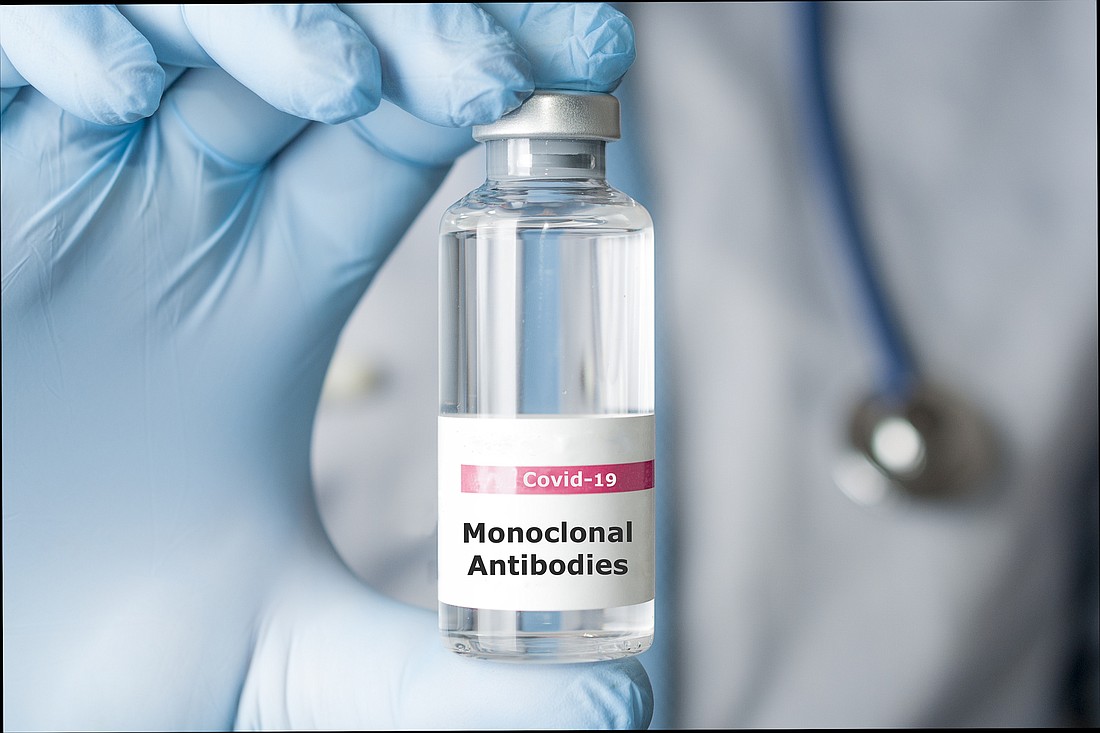- December 15, 2025

by: Scott Powers
Florida Politics+
For a month, Gov. Ron DeSantis has responded to Florida’s COVID-19 crisis by barnstorming the state, urging people who catch the virus to get monoclonal antibody treatments right away.
The message appears to be taking hold. It also might be calling enough attention to Florida’s COVID-19 summer surge that Floridians also are flocking to vaccination sites.
As a result, Florida is moving out of the summer with momentum on two fronts — significantly rising vaccination rates and what appears to be the nation’s most aggressive effort to promote monoclonal antibody treatments for people sick with COVID-19.
The monoclonal antibody treatment, available since 2020 but still not yet in universal use, appears to have been given to more than 85,000 people since DeSantis began his crusade on Aug 5.
Since then, DeSantis has personally overseen the opening of 25 state-sponsored monoclonal treatment centers, using news conferences to urge people to come in and get the treatment.
Also, since he started touring the state promoting treatment, 63,000 Floridians have received monoclonal antibodies at the state-supported centers now dotting Florida, according to the Governor’s Office. In addition, federal data show another 22,600 people have received monoclonal antibodies through hospitals in Florida.
There are no readily available data to show if other states are organizing and administering the treatment outside of hospitals or how many people are receiving treatment at such centers. Yet Florida’s 22,600 in-hospital monoclonal treatments from Aug. 6 to Sept. 2 lead the nation in hospital treatments, according to data provided by the U.S. Centers for Disease Control and Prevention.
If caught early, “COVID is a treatable illness,” DeSantis said Wednesday in Palm Coast. “You didn’t hear as much about these treatments for a long time, as you should’ve.”
Monoclonal antibody treatment appears to have caught on throughout the South — particularly in states with low vaccination rates and high infections rates this summer.
Yet, unlike some other states, Florida appears to be going forward with both increases in monoclonal antibody treatments and vaccinations.
At the same time, hopeful signs indicate Florida’s surge has been falling off, starting around mid-August. Hospital officials say they’ve seen reductions in COVID-19 patients.
Nonetheless, in the week ending Sept. 2, Florida still had the nation’s fourth-highest rate of new cases per capita, behind Tennessee, South Carolina, and Mississippi. Florida’s total of 612,461 new cases and 6,506 new deaths reported since Aug. 5 both lead the nation by considerable margins.
This week, DeSantis vowed to expand Florida’s monoclonal antibody program from the Regeneron brand now in use to include treatment cocktails produced by Eli Lilly and GlaxoSmithKline.
Unlike most other Southern states, Florida also is seeing a dramatic increase in the number of people seeking vaccinations.
The 22,600 monoclonal antibody treatments Floridians received in hospitals since Aug. 5 compares to 571 monoclonal treatments provided in Florida hospitals in July. At the same time, Florida’s fully vaccinated rate increased to 53% of the total population, from 49% on Aug. 5.
Louisiana hospitals administered 20,710 monoclonal treatments between Aug. 5 and Sept. 2, compared with 1,854 in July. By Sept. 2, Louisiana’s vaccination rate was just 42%, the sixth-lowest in the country.
Mississippi was third in the country, providing 17,833 monoclonal treatments in the Aug. 5-Sept. 2 period, compared with 935 in July. On Sept. 2, the CDC reported Mississippi’s vaccination rate was 39%, tied for the lowest in the nation.
Alabama was fourth, administering 13,358 monoclonal antibody treatments in August and early September, compared with 1,208 in July. On Sept. 2, Alabama’s vaccination rate also was 39%.
Georgia rounded out the nation’s top five for monoclonal antibody treatments, providing 11,349 in the most recent four-week span, compared with 783 in July. Georgia’s vaccination rate was 42% on Sept. 2.
At the other end, the states with the nation’s highest vaccination rates — Vermont (68%), Connecticut (66%), Massachusetts (66%), Maine (66%), and Rhode Island (65%) — are seeing very little use of monoclonal antibody treatments.
Of those, Massachusetts saw the most monoclonal antibody treatments provided through hospitals in the past four weeks, but there were just 547. According to CDC data, in Vermont, only 32 people have received the treatment in hospitals since Aug. 5.